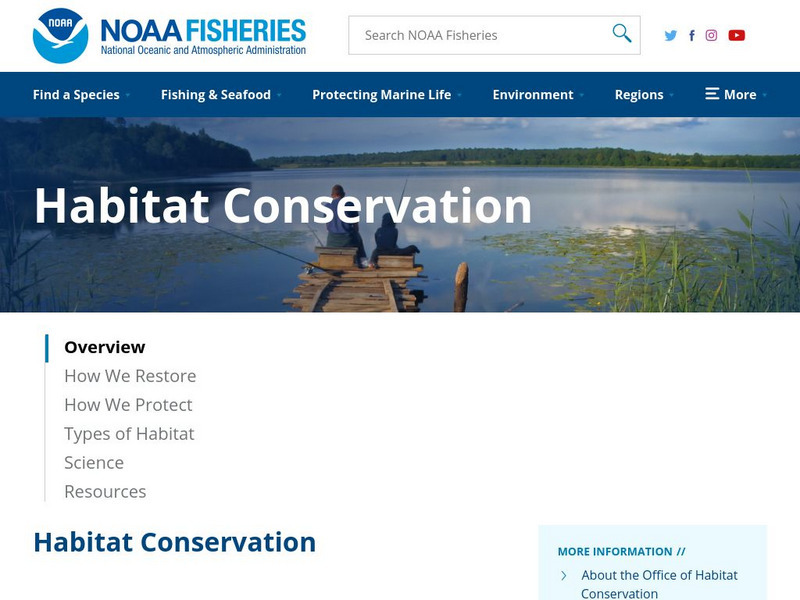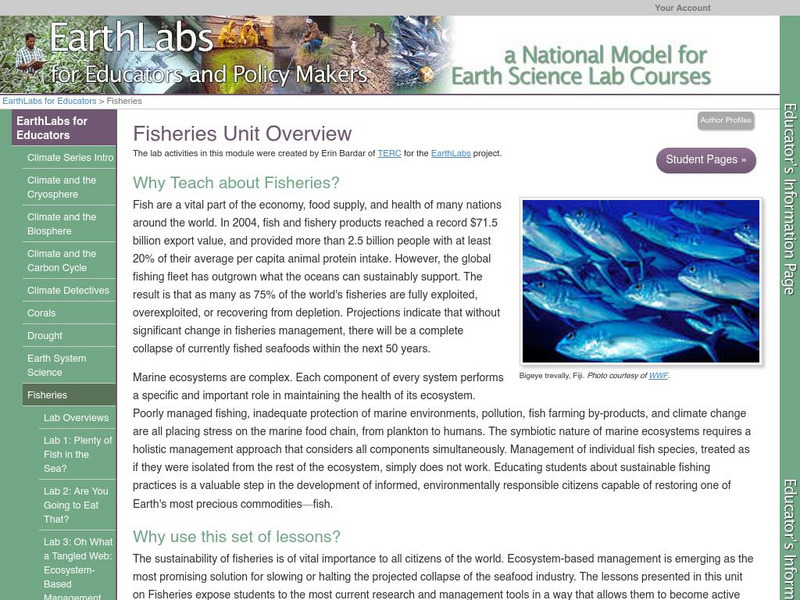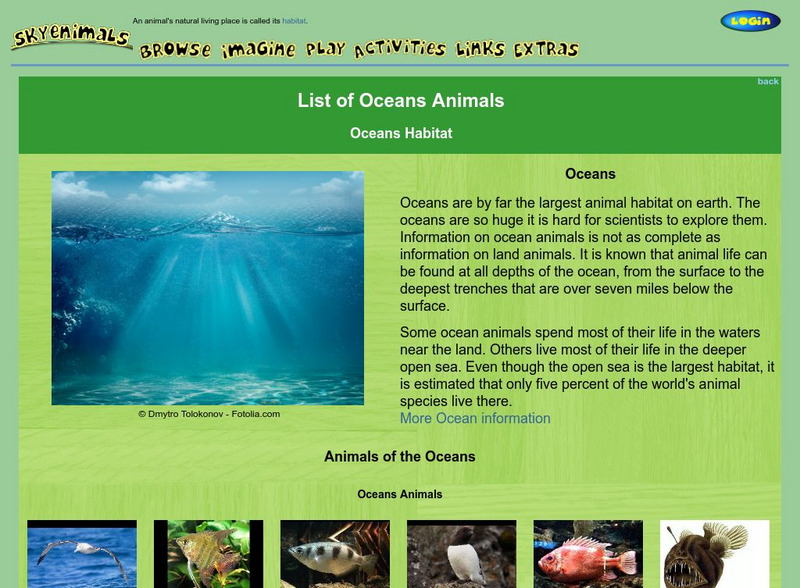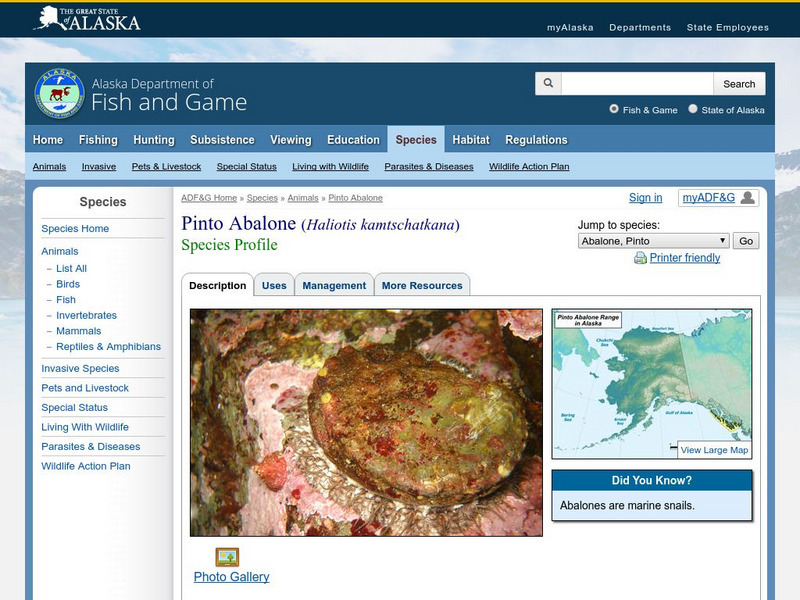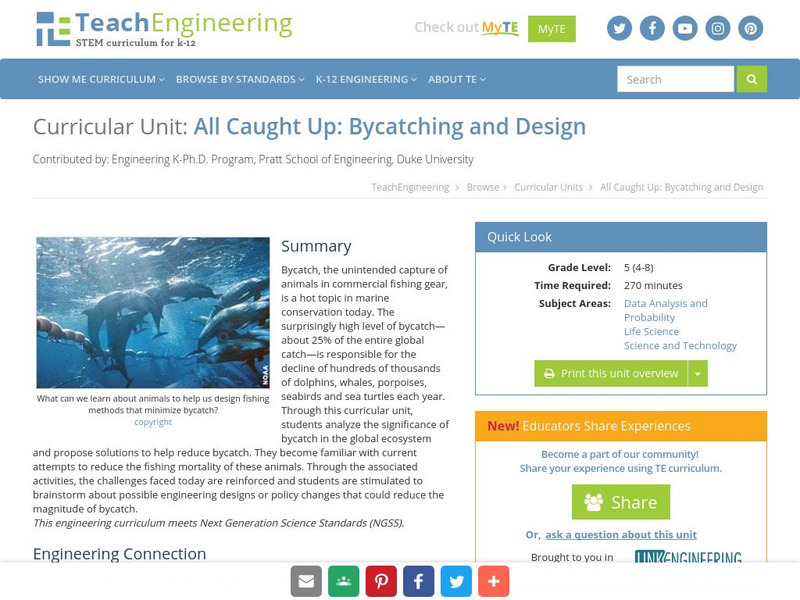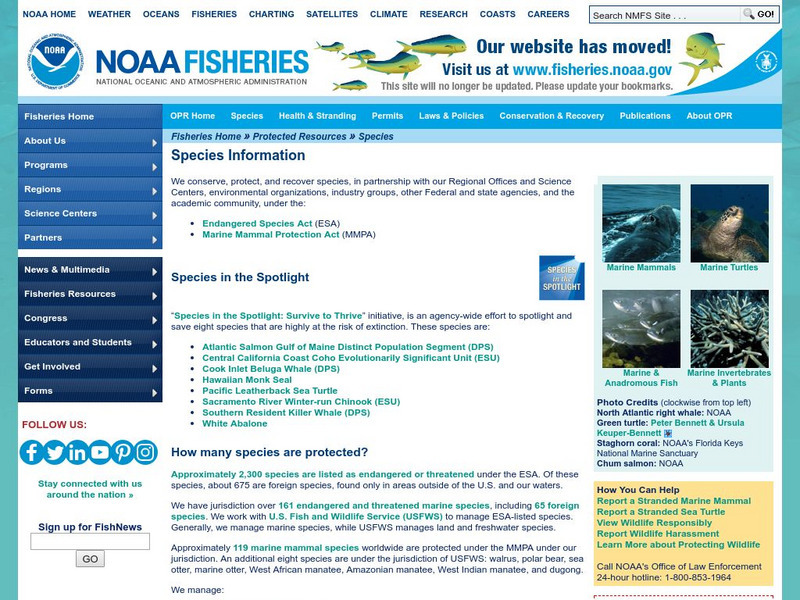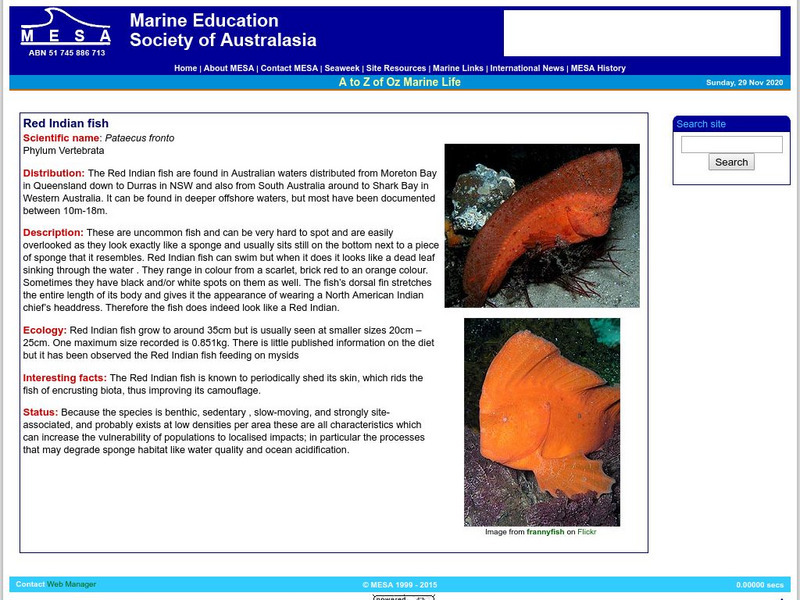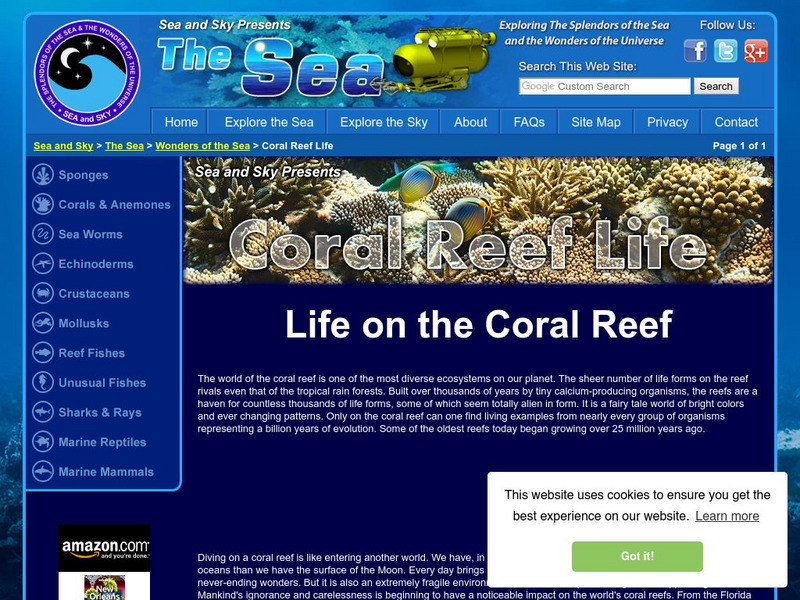Other
Native Planet: Dangerous Sea Life
Learn about venomous fish and other animals with the ability to inject venom, such as jellyfish and other venomous invertebrates.
Other
The Fish and Wildlife Research Institute: Home Page
This page features a taxonomic list of the stony corals(with pictures) observed by the Coral Reef/ Hardbottom Monitoring Project in the Florida Key's National Marine Sanctuary. Site features a toolbar with the latest news in marine...
Other
North Carolina Dept. Of Environment & Natural Resources: Kids' Educational Pages: Fish
A great site for kids wanting to learn more about fish and have some fun at the same time. It provides information about fish including food chain, fun fish facts, crustaceans, and shellfish: oysters, scallops, and clams. It also...
NOAA
Noaa: Fisheries Office of Habitat Conservation
NOAA Fisheries Office of Habitat Conservation oversees the conservation of United States coastal and marine habitats. Learn about the different projects they have undertaken and supported, what the work involves, and why it is so...
Science Education Resource Center at Carleton College
Serc: Fisheries
Expose students to the most current research and management tools in a way that allows them to become active participants in both learning about and conserving marine ecosystems.
NOAA
Noaa: North West Fisheries Science Center
This home page provides access to information about research and conservation efforts to protect and preserve living marine resources.
Tramline
Tramline, Inc.: Virtual Ocean Field Trip
In this enchanting site, students will learn basic principles about oceans and will be introduced to an assortment of sea life, both plant and animal. Other interesting ocean links can be found on the teacher resource section of this link.
Other
Great Barrier Reef Marine Park Authority: Great Barrier Reef Marine Park
Your connection to everything related to the Great Barrier Reef. Read the latest news and updates, such as media releases and letters to the editor. View maps that show fishing and boating, tourist spots, and the reef itself.
Mariners' Museum and Park
Mariners' Museum: Watermen of the Chesapeake
In this resource, students can meet the modern-day watermen of the Chesapeake Bay region. Find out about their day-to-day struggles with living and working within the nation's largest estuary system.
Other
Skyenimals: List of Ocean Animals: Ocean Habitat
Learn about the largest animal habitat on Earth with this website that gives facts and images of the ocean habitat. Site contains pictures and images of ocean animals.
Encyclopedia of Life
Encyclopedia of Life: Spiny Rayed Fishes
Extensive resource examines spiny rayed fishes with a description, pictures, and maps. Includes facts on habitat, history, behavior, conservation, and external links.
DOGO Media
Dogo News: Nyc Subway Cars Transform Into Condominiums for Fish
Read about the disposal of New York City subway cars into the Atlanic Ocean, and how these cars are then used by the marine life. Includes video.
Other
Alaska Department of Fish and Game: Pinto Abalone
Tab through the contents of this site to learn about the Pinto Abalone, which is native to the coastal waters of southern Alaska.
Other
Fins: The Fish Information Service
A good source of information on aquariums, aquarium upkeep, and aquarium fish. Includes an index of freshwater and marine fish and invertebrates listed by type, Latin name, and common name. Index includes photos. Links to aquarium sites,...
Ducksters
Ducksters: Fish for Kids: Learn All About Aquatic and Ocean Marine Life
Kids learn what makes up a fish. What are gills and how do they breathe in the water?
TeachEngineering
Teach Engineering: All Caught Up: Bycatching and Design
Bycatch, the unintended capture of animals in commercial fishing gear, is one of the hottest topics in marine conservation today. About 25% of the entire global catch is bycatch. This surprisingly high level of bycatch is responsible for...
Woods Hole Oceanographic Institution
Woods Hole Oceanography Institute: Adaptations to Light
View several pictures of ocean life through the eyes of scientists and staff at Woods Hole Oceanography Institute. This particular slideshow highlights how ocean creatures change their colors in order to either hide from or frighten...
NOAA
Noaa: Fisheries: Cetaceans: Whales, Dolphins, and Porpoises
Learn more about the marine mammal group of cetaceans. Take a look at their status on the Endangered list and find out what situations put them on that list.
Other
Marine Education Society of Australasia: Red Indian Fish
A brief description of the Red Indian fish, found only in the waters around Australia. The page includes: distribution, description, ecology, interesting facts, and status of this species.
Other
Sea Sky: Reef Life
The coral reef, its composition and inhabitants are explored here in detail. With additional information about the life that inhabits a coral reef.
NOAA
Noaa: Northeast Fisheries Science Center: Fish Faq
This site is provided for by the Northeast Fisheries Science Center. Do fish sleep? Do they chew food? Can any fish swim backwards? How many Pinnipeds are on the Endangered Species List? Find out the answers to these questions and many...
Smithsonian Institution
National Museum of Natural History: Ocean Planet
Detailed website that was a companion to a 1995 traveling exhibit of the Smithsonian. Links to lesson plans and other educational materials are at the bottom of the page. Enter the exhibition to explore the world of the ocean.
Other
Rutgers: c.o.o.l. Class: Biology Project: Gone Fishing
In this C.o.o.l. project, you are given a task to complete. You will predict where fish should be found in a specific region.Follow the steps of the scientific process outlined on the left menu bar. Useful educational tool for both...
NSTATE
Alaska State Symbols and Emblems
Find out all about the state symbols and emblems of Alaska. Clicking on the words under the heading "Symbol/Emblem" will usually provide a picture and more information. The date the symbol was adopted is also included.


